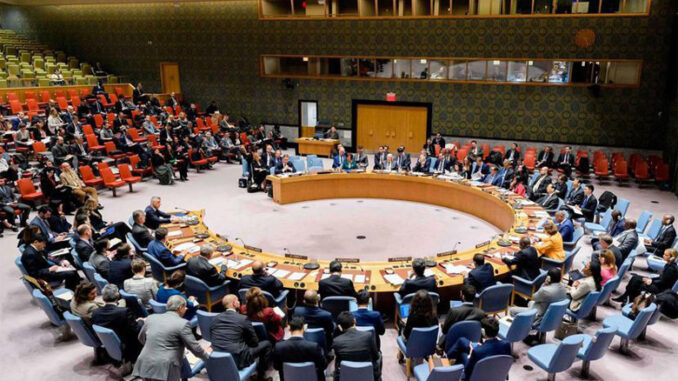
It is today that Mozambique takes office as a non-permanent member of the United Nations Security Council. The election took place last year and the country had a unanimous vote of the 192 members of the General Assembly present at the session.
Mozambique managed to convince Southern Africa, then the whole continent, that for the first time it was in a position to occupy the vacant non-permanent membership of the United Nations Security Council. But that was not enough.
The African Union has only a little more than 50 members in the United Nations, and at least 129 of the 192 possible votes were needed for the country to be elected. Therefore, Mozambican diplomacy formed a team to campaign for the country. And it was done, by the way, well done!
As a result, on June 9th of last year, Mozambique was elected, not with 129 votes, but with all possible votes. On the same day five other non-permanent members were elected. None of them had as many votes as our country.
Here in the country, the President of the Republic, accompanied by some figures from the current government and from the governments of the past, sat in the presidency to follow the ceremony. When the election materialized, Nyusi was a happy man, but aware of how much responsibility this represented.
Of all the responsibilities, the commitment to peace takes the lead because, as Nyusi pointed out after the election, “our country has a history, a record, and experience of advocating conflict mitigation measures and, above all, of promoting negotiated solutions for peace.”
Mozambique’s mandate is for two years and ends on December 31 of next year, and is not immediately renewable, according to the UN charter. But this does not seem to worry Mozambique, because its agenda is well designed.
Proof of this is that, in front of the Prime Minister of Portugal, a country where he is the UN Secretary General, Filipe Nyusi said that Mozambique will join a cause defended by several African leaders and even from other corners of the world, the reform of the Security Council to allow the entry of other members to the list of permanent ones.
Moreover, recently, specifically on the first day of the year, Mozambique’s ambassador, Pedro Comissário Afonso, spoke of an agenda that is no longer just national and will be one of Mozambique’s biggest focuses: terrorism. Pedro Comissário said that the focus is to avoid that the phenomenon continues to take root in our continent.
All of Mozambique’s work begins this Tuesday, with the inauguration, where he will be represented by Pedro Comissário Afonso. He himself will raise the country’s flag in the concert of nations and deliver a speech on behalf of the Mozambicans. Like Mozambique, four other members will take office, namely Ecuador, Japan, Malta, and Switzerland.
Exiting are India, Ireland, Mexico, Norway, and Kenya, which will be replaced by Mozambique in one of the African and Asian countries.
